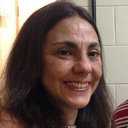Transient hyperglycemia during childhood acute lymphocytic leukemia chemotherapy: an old event revisited.
Keywords
Abstract
Hyperglycemia has been described as a common event occurring during acute lymphocytic leukemia chemotherapy. It is associated with the synergistic effect of L-asparaginase and glucocorticoids, and related to poor outcome. Our goal was to compare clinical and laboratory findings between hyperglycemic episodes occurring during childhood acute lymphocytic leukemia induction chemotherapy. Here we describe 12 (3.8%) high-risk patients of 311 total patients, 9 (75%) of who are female. The 12 patients presented with 16 hyperglycemic episodes classified into adverse or satisfactory categories. There were no differences in clinical or laboratory variables among groups, although the majority of episodes occurred in pubescents, regardless of the type of glucocorticoid employed. Despite the fact that only 1 patient was overweight, pancreatitis was not diagnosed. Although we could not determine whether hyperglycemia predicts an adverse outcome, glucose evaluation played an important role during induction chemotherapy. To date, recognized risk factors for hyperglycemia no longer explain our findings, thus other mechanisms related to insulin secretion and action should be further studied.


